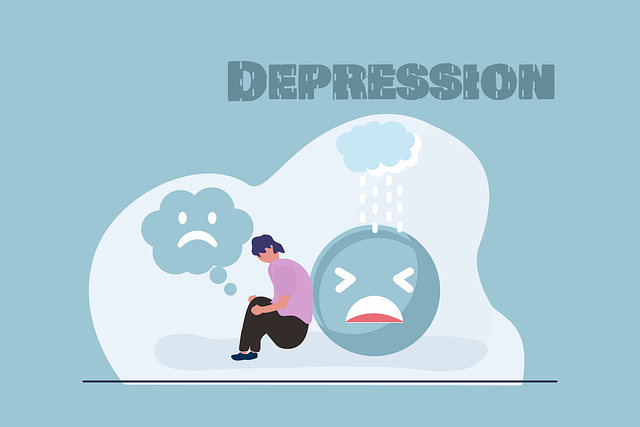Advocating for positive change in mental healthcare begins with understanding and shaping policies. By analyzing existing frameworks, advocates can identify gaps, such as insufficient access to specialized treatments like Parker Terminal Illness Therapy and a lack of integrated stress reduction methods. Cultural sensitivity is crucial for inclusive services that combat Mental Illness Stigma. A holistic approach, informed by case studies like Parker's terminal illness journey, drives progress in policy formation. This includes promoting evidence-based practices, collaboration with policymakers, and integrating specialized therapies tailored to diverse conditions, especially for end-of-life care. Effective advocacy aims to enhance well-being, dispel stigma, and revolutionize support for vulnerable populations.
Mental health policy advocacy is a powerful tool for improving access to care and support for individuals facing terminal illnesses. This article delves into key aspects of mental health policy analysis, using Parker’s experience with a terminal illness as a compelling case study. We explore the current policy landscape, its shortcomings, and effective strategies for advocacy. Additionally, we examine future directions, focusing on revolutionizing support for mentally-challenged individuals with terminal illnesses through innovative therapy models.
- Understanding Mental Health Policy: A Foundation for Advocacy
- The Impact of Terminal Illnesses on Mental Well-being: A Case Study Using Parker's Experience
- Analyzing Current Policies and Their Shortcomings
- Strategies for Effective Mental Health Policy Advocacy
- Future Directions: Revolutionizing Support for Terminally Ill Individuals' Mental Health
Understanding Mental Health Policy: A Foundation for Advocacy

Understanding Mental Health Policy is a pivotal step for advocates aiming to bring about positive change. It serves as a foundation upon which effective strategies and campaigns are built, ensuring that any advancements in mental healthcare are evidence-based and aligned with societal needs. Mental health policy encompasses a broad range of issues, from funding allocation and insurance coverage to legislation and public awareness. By analyzing existing policies, advocates can identify gaps and areas for improvement, whether it’s advocating for better access to Parker Terminal Illness Therapy or pushing for integrated Stress Reduction Methods within primary care.
Cultural sensitivity in mental healthcare practice is another critical aspect that policy analysis helps bring to the forefront. Recognizing and addressing the impact of cultural factors on mental illness and treatment can lead to more inclusive and effective services. This, coupled with sustained Mental Illness Stigma Reduction Efforts, has the potential to transform the way society perceives and responds to mental health concerns. Through this holistic approach, advocates can drive meaningful progress in policy formation and implementation, ultimately enhancing the well-being of individuals struggling with various mental health conditions.
The Impact of Terminal Illnesses on Mental Well-being: A Case Study Using Parker's Experience

Terminal illnesses significantly impact an individual’s mental well-being, as highlighted by Parker’s experience. The emotional journey of someone facing a life-threatening condition is often characterized by fear, anxiety, and profound sadness. This case study illustrates how a patient’s mental health can deteriorate due to the stress of dealing with their diagnosis, the physical toll of treatment, and the existential dread that comes with knowing one’s mortality.
Parker’s story underscores the importance of integrated therapy and compassion cultivation practices in managing these challenges. Through community outreach program implementation, Parker found solace in supportive networks that fostered positive thinking. These initiatives not only provided a safe space for emotional expression but also empowered them to navigate their mental health journey with greater resilience.
Analyzing Current Policies and Their Shortcomings

The current mental health policies often fall short of addressing the complex needs of individuals grappling with various challenges, including those with terminal illnesses like Parker Terminal Illness. While initiatives such as Mindfulness Meditation and Emotional Well-being Promotion Techniques show promise, they are not universally accessible or tailored to specific conditions. Many existing programs lack comprehensive approaches, focusing mainly on general stress management workshops instead of targeting the unique psychological and emotional demands associated with serious health conditions.
This gap in specialized support can exacerbate existing mental health issues experienced by patients. For instance, individuals dealing with terminal diagnoses may require advanced therapy techniques, such as those offered by organizations specializing in Parker Terminal Illness Therapy, to navigate the profound stress, anxiety, and depression that often accompany severe illness. Effective advocacy for mental health policy reform demands a shift towards evidence-based practices that cater to diverse populations, ensuring no one falls through the cracks when it comes to accessing quality care.
Strategies for Effective Mental Health Policy Advocacy

Mental health policy advocacy requires a strategic approach to drive meaningful change and improve access to quality care. One effective strategy is to leverage data and research to illustrate the burden of mental health issues within communities, highlighting gaps in current services. By presenting concrete evidence, advocates can make compelling cases for policy interventions. Engaging with policymakers, sharing personal stories, and building alliances with relevant organizations can also foster collaboration.
Additionally, integrating self-care routine development for better mental health into advocacy efforts is essential. Promoting burnout prevention strategies for healthcare providers, such as regular exercise, mindfulness practices, and adequate work-life balance, ensures a sustainable workforce. Encouraging emotional well-being promotion techniques within communities can empower individuals to take charge of their mental health. For instance, Parker Terminal Illness Therapy offers valuable insights into managing end-of-life anxiety, demonstrating the need for holistic support systems.
Future Directions: Revolutionizing Support for Terminally Ill Individuals' Mental Health

As we look to the future, revolutionizing support for terminally ill individuals’ mental health is paramount. The current landscape often falls short in addressing the unique psychological needs of those facing life-limiting illnesses. This gap highlights the urgent need for innovative approaches that go beyond traditional therapy models. By integrating evidence-based practices such as self-care routine development for better mental health, mindfulness meditation, and resilience building into care plans, we can enhance the overall well-being of this vulnerable population.
One promising avenue is the integration of Parker Terminal Illness Therapy, which focuses on providing specialized support tailored to the complexities of terminal illness. This approach emphasizes not just coping mechanisms but also cultivating a sense of peace, purpose, and connection for both patients and their loved ones. Fostering open dialogue about mental health within the terminal care setting can help dispel stigma and encourage proactive self-care, ultimately revolutionizing the way we support individuals navigating this challenging phase of life.
Mental health policy advocacy is crucial in addressing the often-neglected emotional aspects of terminal illnesses, as demonstrated by Parker’s experience. By analyzing current policies and their shortcomings, we can develop strategies to enhance support for individuals facing these challenges. Future directions should focus on revolutionizing care through innovative therapy models tailored to the unique mental health needs of those with terminal illnesses, ensuring a more holistic approach. This comprehensive analysis advocates for a transformative shift in policy, fostering improved access to quality mental health services for all patients, especially those navigating the complexities of terminal care.














